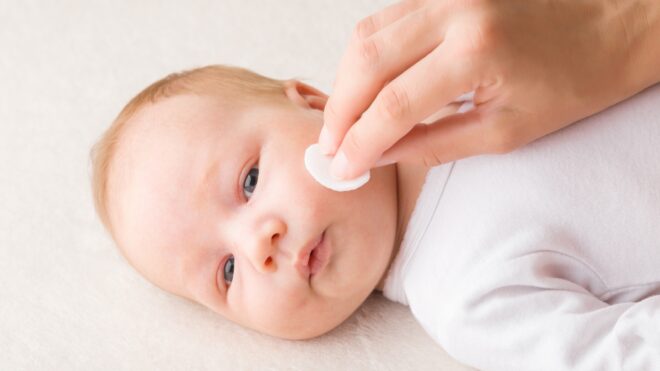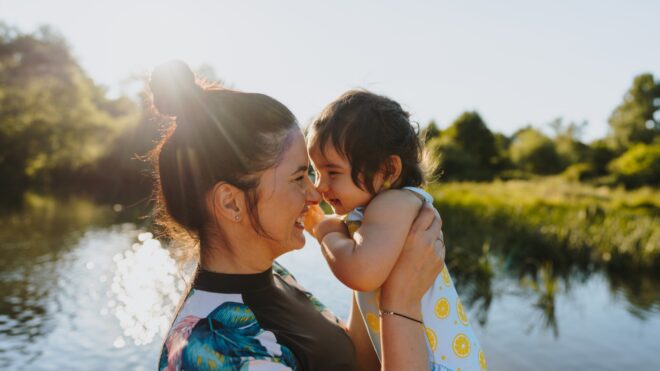When the weather starts to get warmer, we all want to get outside and enjoy the sunshine. It's so nice to soak up the sun, but we have to remember to take care of our skin (and our kids' skin)!
As a pediatrician, Dr. Amna Husain hears many parents' thoughts and ideas about taking care of their babies, and she’s heard one myth about summer baby skin care that is just a big no-no. “When they see dry skin, some families try to find a natural remedy, apply things like honey to skin,” Husain shares with CafeMom.
“I always tell them honey tastes really great, but I’d be very careful about applying it to rashes because once there’s an opening in the skin, there’s a breakdown in the skin barrier. There’s a chance for infection and bacteria loves sugar. We don’t want to be applying sweet substances to that area because you can potentially increase the risk of a reaction.”
Although newborn baby skin is squishy, soft, and irresistible, it’s not always as flawless as parents expect — and that’s very normal.
“Newborns aren’t all born with perfect skin, they can have rashes, they can have dry skin,” notes Husain, whose husband is a dermatologist.
It’s a challenge to keep up with all the trends, new products, and recommended routines suggested to protect baby skin, so Husain gives us some important tips on how to support your baby’s skin health.
There are simple ways to keep the baby’s sensitive skin healthy from day one.
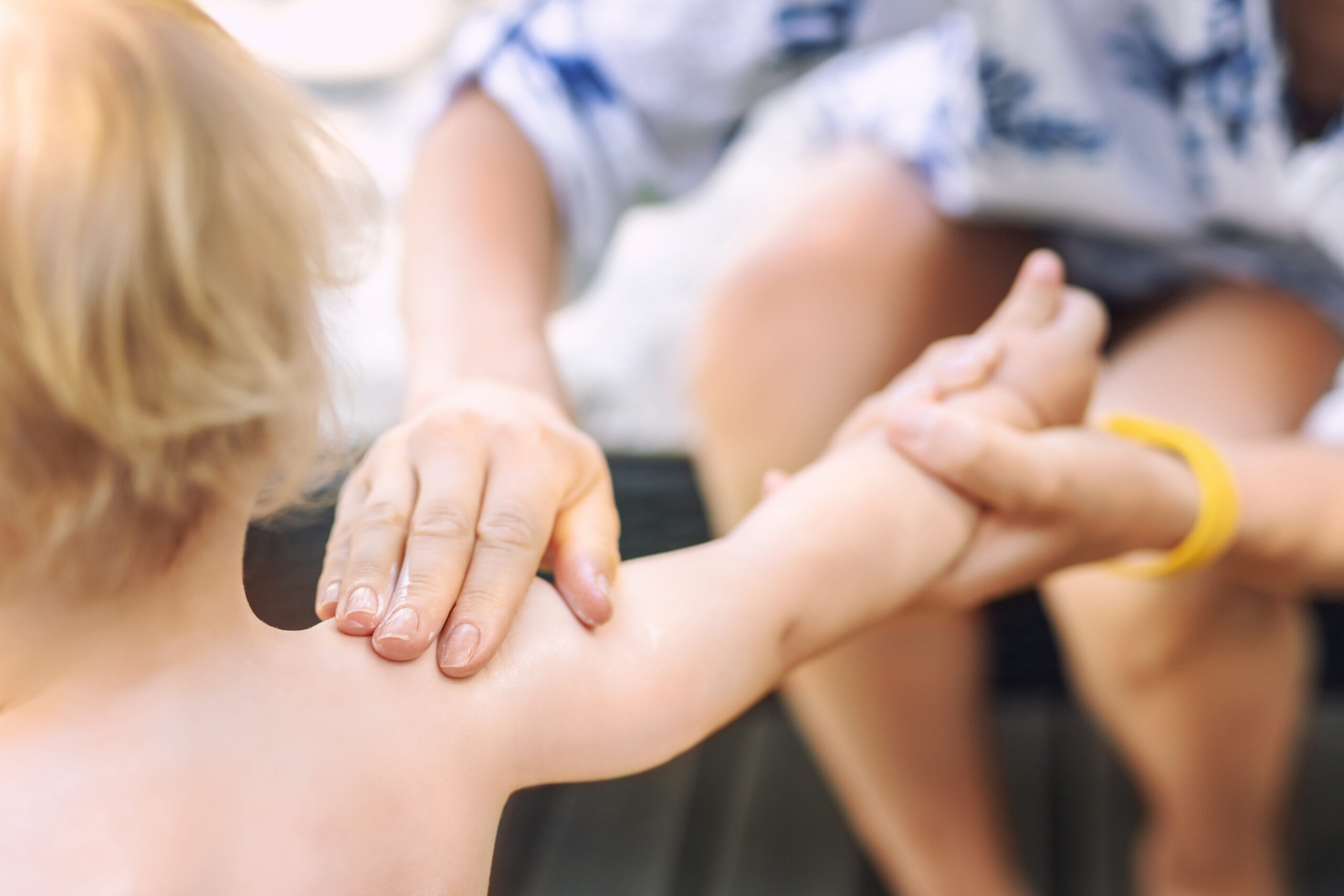
“Newborn skin is very delicate, so what we put on their skin does matter,” says Husain, who is a mom to a 3-year-old and has a baby due this July. “One thing I really like and recommend is a ceramide-containing moisturizer for their skin daily. Ceramide is just a word for a type of fat that is actually in our skin’s barriers. Our skin is actually almost waterproof, so what we like to do is keep the skin intact by locking in that moisture.”
Husain suggests using a lotion on baby skin in the summertime because they’re made of a thinner, more spreadable base. In the winter, creams are nicer to use because they are thicker and more protective when the weather is harsher and drier.
Parents of newborns are often rightfully concerned about babies becoming exposed to the elements, whether it’s brutal cold weather and winds or intense summer sun and heat, so where you live and the climates through the seasons can influence how to care for a baby’s skin.
“We don’t want our babies getting too cold or too hot. I think parents and grandparents especially fixate on, ‘Don’t let them get cold,’ but they don’t realize that overheating as well, can cause rashes, sweating, and it can cause the child to become uncomfortable,” Husain shares. “So that’s another important thing I like to tell families: Really no matter what season your child is born in, one of the best practices is to be mindful when dressing your baby.”
As we head into a busy summer in a few short weeks, protecting skin from the sun and heat is key.
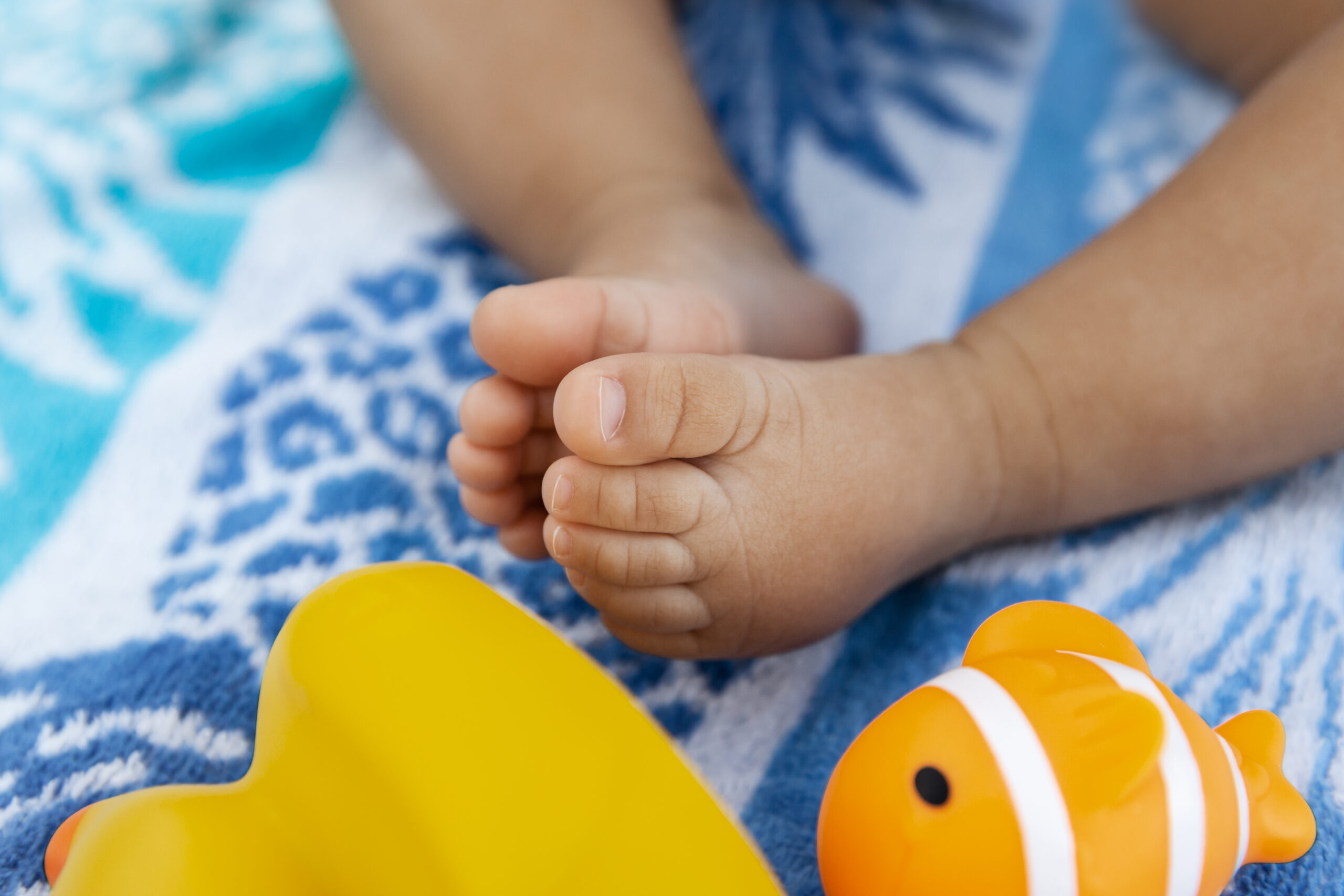
“In general, it’s recommended that we wait until the baby is 6 months old before applying sunscreen,” Husain explains. “Sunscreen under 6 months of age hasn’t been studied, so that’s why we refrain from using sunscreen on those little ones.”
Instead, you can buy cute little sun hats to protect your baby’s head and sun-protective clothing that is lightweight and is made of breathable fabric that covers their arms and legs.
After 6 months of age, Husain likes mineral-based zinc oxide or titanium dioxide sunscreens. They work really well to protect skin, and we should apply them 15 minutes before going outside so it can be absorbed into the skin and then reapplied every two hours, even if you’re not in the water.
“You can buy tinted sunscreens that blend into dark skin tones very well,” she says. “Also, don’t be afraid to park your little one in the shade.”
Another way to protect baby's skin year-round is by choosing the right diaper.
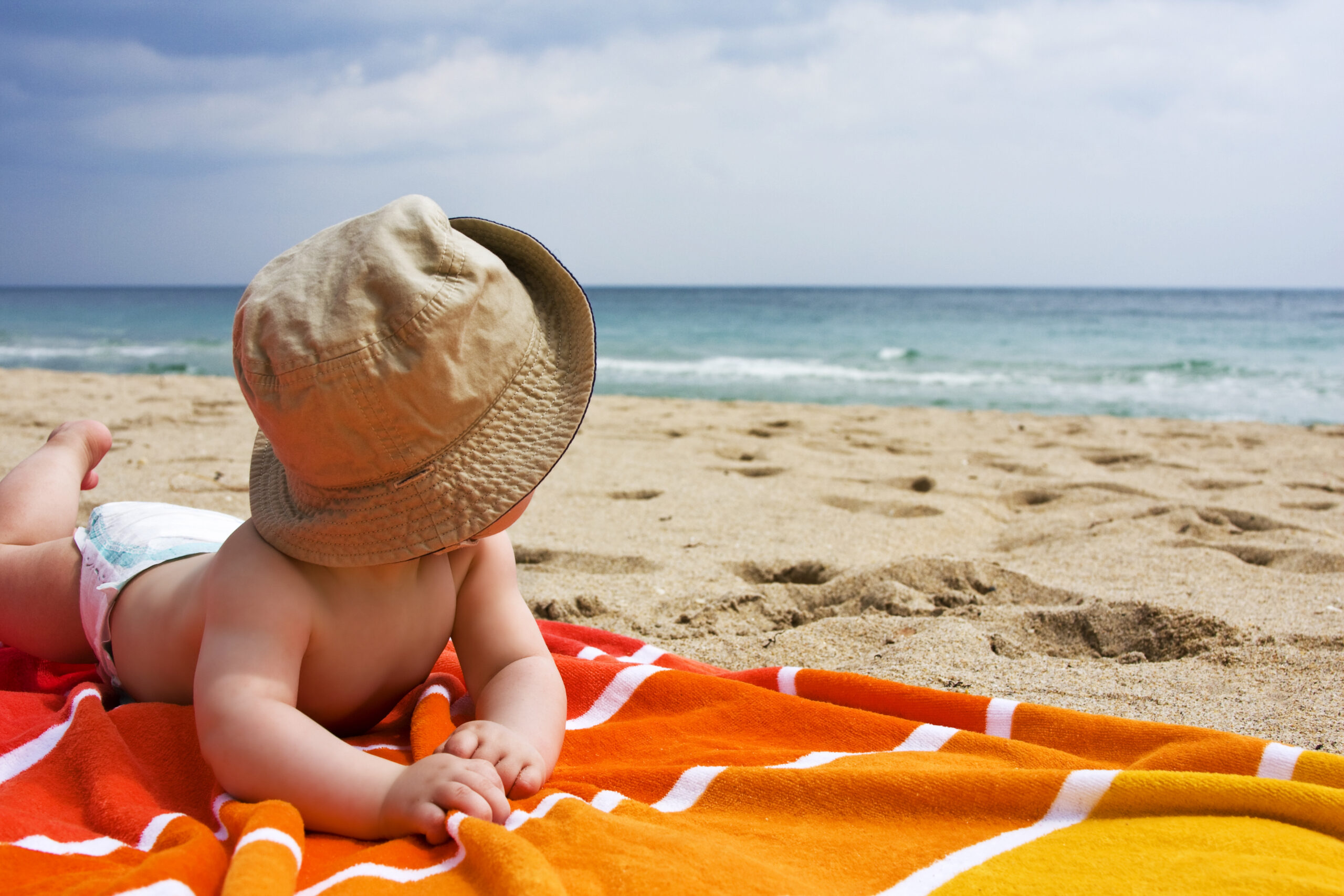
“As a pediatrician and mother myself, I know how difficult it can be to protect a baby’s sensitive skin,” says Husain, who also serves as Pampers Swaddlers’ expert pediatrician. “Since babies are in diapers 24/7, a high-performance diaper that keeps your baby’s skin dry and comfortable can make all the difference.”
Husain recommends diapers that are hypoallergenic, paraben- and latex-free, and breathable — all of these factors contribute to keeping baby's skin dry and healthy.
“What your baby’s diaper doesn’t absorb, their skin does, which plays a big part in their skin health,” Husain continues. “Urine and stool are acidic, so we want to make sure that we wick that moisture and messy, poopy stools away from our babies' skin, not just during the day, but through the night.”
As we wrapped up our chat, the doctor had one last myth about skin care to debunk: the use of long, hot baths and showers.

“Even with older kids and adults — don’t make your showers or baths too hot and don’t make them too long. They feel so good, but don’t do that to your skin," cautions Husain.
Yep, even though long bathing sessions feel lovely, they can dry out the skin.
"When you come out of the tub or shower your pores are open. That’s a great time to take your moisturizer and seal in any of the moisture that you have," Husain suggests. "This applies to babies, kids, and adults. Once you towel off the baby, go ahead and apply your moisturizer and seal those water droplets right back into the skin’s barrier.”
She suggests keeping baths short and lukewarm and having your baby moisturized within two to three minutes of getting out of the bath. “Use quality moisturizers, something with a ceramide-containing moisturizer. Baby skin care is not tough; you just need to do a few key things and your little one is set to go.”
